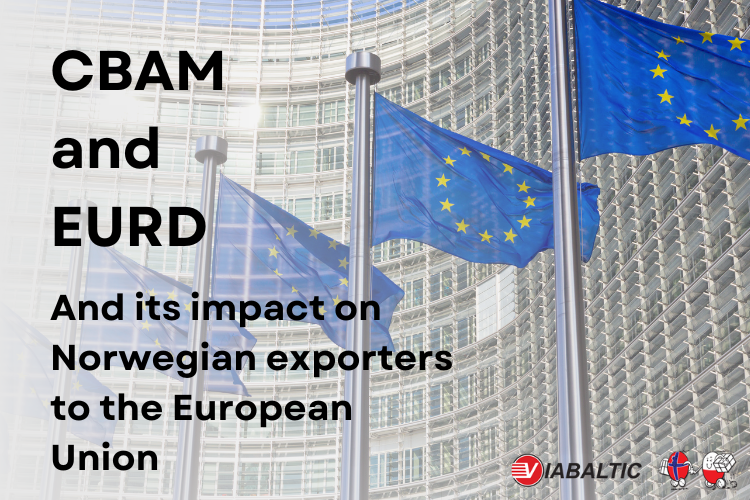EUDR and CBAM and its impact on Norwegian exporters to the European Union

In response to growing challenges related to climate change, the European Union has introduced two key regulations: the EU Deforestation Regulation (EUDR) and the Carbon Border Adjustment Mechanism (CBAM). Both aim to enhance sustainability and reduce greenhouse gas emissions. While Norway is exempt from CBAM, it is no longer exempt from EUDR, which significantly affects Norwegian exporters.
EUDR: EU Deforestation Regulation
The EUDR, which will come into force on December 30, 2024, will significantly impact Norwegian companies, especially those involved in exporting wood and wood-based products. The regulation requires exporters to the EU to prove that their goods have not contributed to deforestation or forest degradation. This applies also to products such as coffee, cocoa, soy, palm oil, wood, rubber, and their derivatives, like chocolate or paper.
EUDR requires both importers and exporters to provide detailed information about the origin of products and their supply chains. Without this, the goods may not be allowed into the EU market.
CBAM: Carbon Border Adjustment Mechanism
CBAM came into effect on October 1, 2023, with full implementation scheduled for 2026. It imposes toll fees on imported goods with high CO2 emissions, such as cement, aluminum, iron, steel, fertilizers, hydrogen, and electricity. The goal is to prevent «carbon leakage,» where production moves to countries with lower environmental standards. During the transition phase, which lasts until 2026, importers will only need to report emissions related to their goods. However, starting in 2026, they will need to purchase carbon credits to offset these emissions. The fee is intended to correspond to what European producers must pay regarding CO2 costs.
While Norway is not directly subject to CBAM, Norwegian companies exporting goods to the EU or working with EU partners should closely monitor these regulations. Products originating from Norway are exempt from CBAM, but companies importing goods from third countries may be required to comply with these rules.
On the other hand, EUDR will affect Norwegian wood, coffee, and derivative product producers if they wish to continue exporting to the EU market.
It is crucial for Norwegian companies to fully understand these new regulations and prepare their supply chains accordingly, especially regarding emissions reporting and product origin.
